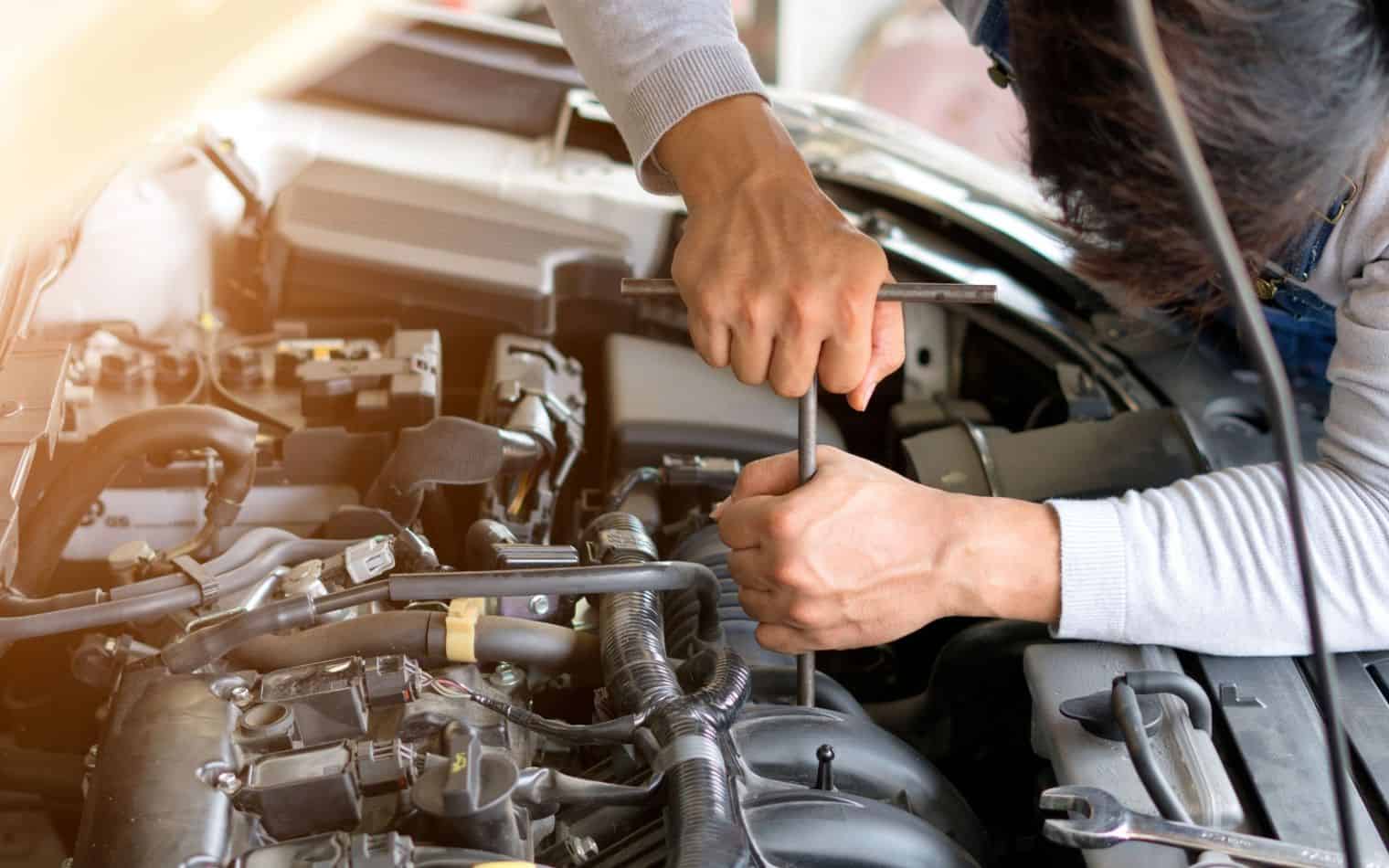Cars are personal properties, so if you bought one with your own money, you should be able to do whatever you want with it, including fixing it yourself. Technically, yes, because it belongs to you (until it doesn’t). But does that make it legal?
Repairing minor issues on your car at home is legal unless you skip the barriers and start disturbing the neighborhood with loud noises, revving your engines, and releasing hazardous substances into the atmosphere that can make your neighbors uncomfortable.
With that in mind, some U.S. states don’t allow citizens to work on their cars at home at all. Even simple things, like changing the oil or plugs on your car, can get you in trouble.
Yes, you read that right. However, some neighborhoods in such states permit residents to work on their cars at home, either because of the limited number of car shops or outrageous charges from mechanics. More info on this issue below.
Is a Mechanic Business from Home Illegal?
Fixing your car at home is one thing, but running a mechanic business from home? That’s a whole different game. Running a business requires having a license to do so. When you register your business, you have to provide a physical address that customers and clients can go to. If you put your home address (depending on the type of business you carry), you might get permission to do so if the company does not require industrial machines. More information on this here
You don’t want to wake your neighbors up first thing in the morning with the sound of heavy metal hitting against the engine of a car or something of the sort. For such a business, it is advisable to rent a garage that is far away from people’s homes because even if you leave your neighborhood and go to another, you will get the same reaction from residents.
In some residential areas, protection agency officers won’t typically barge into your garage when they discover that you run a mechanic business until your business interferes with others’ activities. So, if they receive a report that you have cars parked on the road or that you have polluted your neighborhood with lubricants or any automobile chemicals, you may be penalized.
In the end, it all depends on the laws in the zone, so it is advisable to look up your zoning
Can You Sue a Backyard Mechanic?
Before you proceed with your complaints, ensure that your concerns are valid. Are you suing the mechanic because of personal issues? Is there a problem with their services (not a good reason but can be your motivation)? Are they causing any form of pollution? And so on. All of these questions are the basis for any complaint you could lay at the office of compliance
So yes, you can sue a backyard mechanic if the workshop activities are affecting your livelihood in any way. If the workshop was legally registered, a permit would not have been given because such businesses should not be allowed in residential areas.
Before you proceed to sue a backyard mechanic, be sure to get your facts right. Don’t get across to law authorities if the mechanic is not violating any laws
Can You Refuse to Pay a Mechanic Who Has No License to Operate from Home?
Just as you can sue a mechanic for overcharging or damaging your vehicle
Automobile repairs are categorized into major and minor repairs. Major being any bodywork, painting, engine repair, or anything that requires you to carry out serious repairs. Minor repairs are listed as changing lubricants, replacing brake pads, changing flat tires, taking out filters, and other minor repairs.
In Texas, The Attorney General recommends that:
recommends that:
“You should not allow your car to be inspected, disassembled, or lifted up on a rack until you have obtained a copy of the inspection authorization forms with your signature showing the information outlined above.
You should not assume that a friendly verbal agreement will get your car fixed without arguments, lawsuits, or repossessions. Get everything in writing.
You should not allow anyone to speak for you in negotiating car repairs on your vehicle. Deceptive shops will use this as an excuse to add on extra charges, on the grounds that some other person authorized the repairs You should not disclose your credit card account number, driver’s license number, or any other personal information unless you clearly specify that giving the information is only for loan approval purposes, or unless you have approved the work, the work is finished, and you are ready to pay for it.
You should clearly indicate in writing that giving this information does not constitute an authorization to inspect or repair your vehicle. The authorization to inspect or repair is a completely separate authorization that should also require your signature. Deceptive shops will extract this personal information from you, commence work without your authorization, and then claim that you authorized the work because you provided this information and would not have done so unless you had authorized the repairs.
“You should not leave valuables in your car.”
These recommendations serve as guidance for citizens when dealing with mechanics to avoid being in tight situations.
Automobile producers are pushing for laws that make it illegal to fix your car from home. Their reason for this is backed by the fact that over 10% of road accidents result from mechanical issues. Plus, they want to combat copyright infringement. Would that work out? Possibly. Click here for more information. This might put mechanics in a difficult situation. Only time would tell.
Conclusion
Repairing your own car in your own backyard is generally not an issue, as long as you are not disturbing your neighbors and polluting your neighborhood. But, charging other people for this service is another scenario altogether.
There are certain places that have strict rules when it comes to doing car repairs at home which is why the best thing that you can do is consult the authorities about whether or not you can do this activity in your property. By doing this, you will be able to avoid penalties if it turns out that this activity is not allowed in your community.
If you are planning to start a mechanic business, you will need to secure additional permits and there is a very likely chance that you will not be allowed to run this business from your home garage. Similar to what we previously suggested, it is better to consult the authorities first before you open your business.

